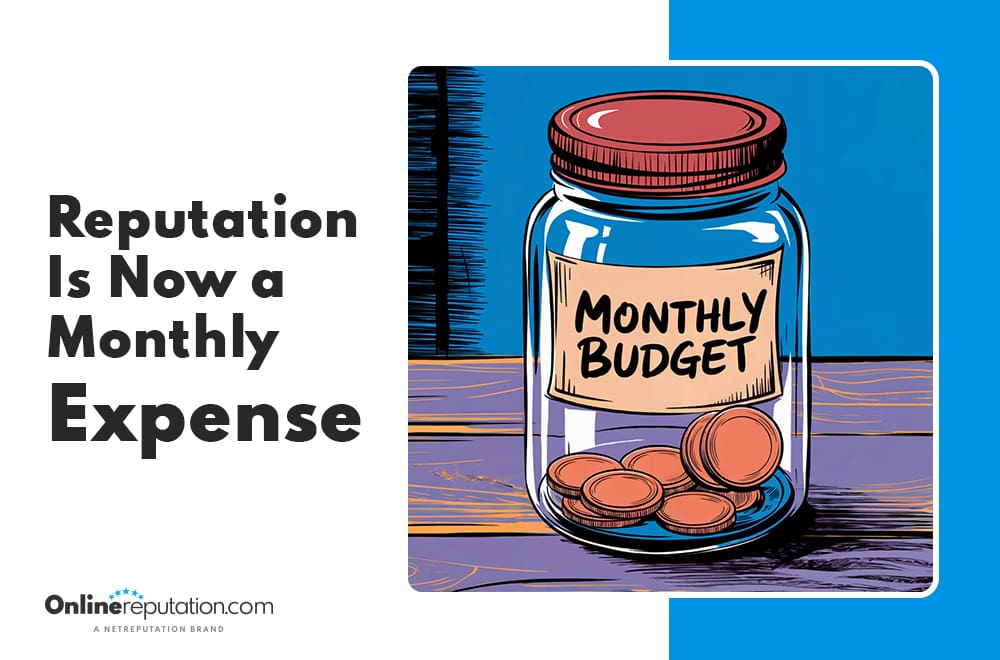
It doesn’t take much—a single fake one-star review can send potential customers running. You’re not alone if you’ve received negative reviews that feel suspicious. Today, Many business owners find themselves targeted by competitors who post fake reviews to drag them down.
These aren’t just harmless jabs. Competitor-planted reviews can hurt your ratings, damage your Google Business Profile, and lead people to question your service before they ever give you a chance. If you’ve seen bad reviews pop up from people you’ve never worked with—or spotted the same reviewer leaving similar complaints on other businesses—you may be looking at a coordinated attempt to harm your reputation.
OnlineReputation.com provides information and services to help you protect your digital presence. Get started with a free online reputation analysis here and learn about our review management services here.
What Are Competitor-Planted Reviews?
Competitor-planted reviews are exactly what they sound like: fake reviews posted by or on behalf of other businesses in your space. They might be written using fake profiles or shared across multiple review platforms like Google, Yelp, or Facebook.
These reviews often:
- Contain vague or false claims
- Describe customer problems that never occurred
- Include identical language across different sites
- Appear alongside multiple reviews left by the same person targeting other companies
If you own a business and spot suspicious reviews that don’t match your actual customer experiences, it’s important to act quickly.
The Real Impact of Fake Bad Reviews
Some might say, “It’s just one bad review.” But in reality, one-star reviews—especially when fake—can damage more than your pride.
Here’s what happens when fake negative reviews are left unchecked:
You Lose Trust (and Customers)
Potential customers are smart. They read reviews. If they see a string of negative online reviews—even fake ones—they’ll often choose to go with a competitor. It doesn’t matter if you have 100 positive reviews; sometimes the most recent bad one stands out.
Your Rankings Drop
Google uses review signals in its algorithm. A pattern of negative feedback (especially sudden) can lower your visibility in search results. That means fewer people find your business, and more traffic goes to others.
You Waste Time Defending Your Name
When fake complaints pile up, your team responds, flags, and tries to get them removed. That time could be better spent actually helping happy customers and improving your service.
How to Spot Fake Reviews from Competitors
If you suspect fake reviews, look for these common signs:
- The same person has posted multiple reviews on different businesses in your niche
- The review is overly vague or doesn’t match your service model
- It references an experience that never happened, or no one on your team recalls
- Other businesses have had the same problem—check if the same reviewer has posted similar complaints elsewhere
Trust your instincts. If something feels off, it probably is.
What to Do When You Get a Suspicious Review
You’ve spotted a review that seems fake. Now what?
1. Collect All the Evidence
Take screenshots, note the reviewer’s name, and check whether the review appears on other platforms. Document everything. This will help if you need to report reviews or pursue legal action.
2. Report Fake Reviews to the Platform
On Google:
- Go to your Google Business Profile
- Find the review
- Click the three dots and select “Report Review”
Explain clearly why the review is suspicious—mention if you’ve never worked with the person, or if the same complaint is posted elsewhere.
Other platforms, such as Yelp, Facebook, and TripAdvisor, have similar processes. The key is to stay factual and professional when flagging the issue.
3. Respond Calmly (If At All)
If the review isn’t removed right away, consider leaving a response. This shows other potential customers you care.
Example:
“Hi [Name], we take feedback seriously, but we can’t find a record of your visit or any matching customer concerns. If you’re a real customer, we’d love to hear more—please reach out so we can make things right.”
This kind of response makes it clear to readers that something doesn’t add up without accusing anyone directly.
Can You Remove Fake Google Reviews?
Yes, but it’s not always easy. As mentioned above, you can report them, but success depends on providing enough evidence that the review violates the platform’s policies.
Legal action may be an option if the review is defamatory or part of a larger attack campaign. It’s rare, but some companies have taken competitors to court over fake reviews, especially when they have proof of coordination.
When Should You Get Help?
If you regularly receive fake reviews or are dealing with a competitor who will not back off, it might be time to seek professional help.
Online reputation management companies specialize in identifying fake reviews, improving your overall ratings with positive customer experiences, and building a stronger digital presence. They use tools to track reviews, flag suspicious activity, and push positive content to the top of search results.
Think of it as insurance for your reputation, especially if your future business depends on what people see online.
The Bigger Picture: Protecting Your Reputation Moving Forward
Fake reviews are frustrating. They’re unfair. But they’re also manageable—especially when you stay calm, act fast, and build a strong wall of authentic feedback around your business.
Here’s how you can stay ahead:
- Encourage happy customers to leave honest feedback
- Respond thoughtfully to all reviews—even the bad ones
- Use tools to track reviews across platforms
- Educate your team on how to flag and report reviews
- Invest in reputation management if problems keep coming back
It’s your name on the line. Don’t let someone else write your story with false claims.
Final Word
Dealing with competitor-planted reviews isn’t just a nuisance—it’s a serious threat to your reputation and ability to grow. But with the right mix of vigilance, tools, and (sometimes) outside support, you can protect your business and turn the focus back to what matters: delivering great service.
If you’re ready to regain control of your reviews and reputation, start by listening to what real customers say—and make sure that’s what the world sees, too.
You might also like
Reputation Is Now a Monthly Expense
It doesn’t take much—a single fake one-star review can send potential customers running. You’re not alone if you’ve received negative …

